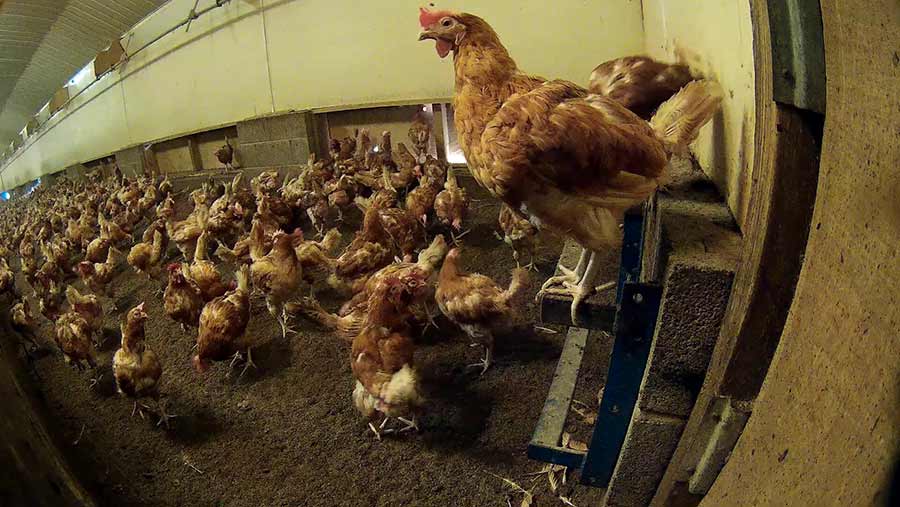Extra vigilance needed as egg farms targeted by activists
 © Animal Justice Project
© Animal Justice Project Free-range egg producers are being warned to step up their vigilance following a spate of targeted incursions by animal rights activists who allege widespread mistreatment of laying hens.
Undercover footage by the Animal Justice Project, reportedly taken inside sheds owned by three directors of the British Free Range Egg Producers Association (BFREPA), was shared with the Sunday Mirror newspaper on Sunday 24 March and subsequently picked up by other media.
See also: Advice on developing a well-trained poultry team
The video incudes scenes showing dead birds, poorly feathered birds, feather pecking and an “egg-bound” hen.
It also alleges that, despite RSPCA requirements that birds should be let outside every day, on the three farms filmed, “popholes remained unopened for as long as three days”.
The video concludes with a message to consumers to avoid all eggs and adopt a vegan diet.
End of lay
It is understood that on one of the farms, the flock was nearing end of lay, so feather coverage was relatively poor, while on another popholes were closed because the birds were undergoing a vaccine treatment.
Images of dead birds being kept in a chest freezer showed nothing more than standard practice on most commercial units.
The three farms were automatically suspended by RSPCA Assured, as is standard practice, but one of them has already been reinstated following inspection by the accreditation body.
Another of the farms is currently empty of hens, so will have an unannounced RSPCA Assured inspection once it is restocked. The third farm is still subject to auditing.
An RSPCA spokesman said: “Sadly, from time to time things can go wrong on farms, but one case of poor welfare is still one too many, which is why we have taken these allegations very seriously.
“However, welfare concerns on RSPCA Assured certified farms are very rare, and many millions more farm animals are having a better life thanks to the work of the charity.”
Awareness
The incident has raised awareness that all farms with livestock are susceptible to break-ins by animal rights activists.
But there are concerns that higher-profile farmers, and those who are directors or officeholders of industry organisations, may be at particular risk.
A BFREPA spokesman said: “It is clear that these farmers have been targeted because they are directors of BFREPA and it is part of a deliberate move to discredit the organisation.
“But they could target anyone. So we would urge members to take all precautions – to maximise welfare and ensure top biosecurity, but also to report anything suspicious to the packer, to the vet or even the police.”
Other key advice incudes recruiting staff carefully and following up any references, upgrading on-site security, and setting up WhatsApp groups with other local farmers to share information.
